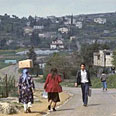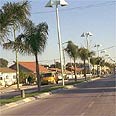

Arab citizens in need of welfare services receive less than half the budget earmarked for Jewish citizens, a new report by the Adva Center for Information on Equality and Social Justice claims.
According to the report, private donors make up for the gaps in the budget, and many social workers do their work voluntarily due to lack of funding.
The report cites numerous examples of discrimination in the Arab welfare sector. One such example asserts that while the state invests NIS 600-650 ($169-182) in a resident of mostly Jewish towns such as Netivot or Ofakim, and up to more than NIS 1,000 ($280) in resident of Beit She'an and Tirat HaCarmel.
However the welfare funds designated for a resident of an Arab community ranges between NIS 136 ($38) in Arara in the Negev and NIS 454 ($127) in Tamara.
In Arab towns the municipal expenditure for a resident in need of welfare aid ranges between NIS 379 ($106) and NIS 1,200 ($336) – this compared to the NIS 8,950 ($2,516).
The percentage of residents in need of welfare aid in Arab communities ranges between 20%-40% of the population, whereas in mostly-Jewish towns such as Savion-Ganei Yehuda the average stands at 5%.
"The fact that the least is invested in Arab communities comes as no surprise," say Shlomo Swirski and Yael Hasson, who authored the report.
"In Jewish towns, the population is well-to-do and is not in need of welfare services, while in Arab communities the residents have copious needs that are not addressed as those in the (Jewish) development towns are."
According to Swirski and Hasson, the problem lies in the fact that the state has never delineated welfare services based on individual needs, or clearly defined the basic 'welfare basket' Israeli citizens have a right to.
In Arab communities a considerable portion of the funding does not come from the state, as would be expected. "A significant part comes from Jewish residents living abroad, and not from the Israeli tax-payer's pocket," the report says, adding that many welfare services are provided by non-governmental organizations, and many social workers work as volunteers.
"The government, which is so willing to compensate development towns with welfare funding, remains unwilling to do the same for Arab communities."















